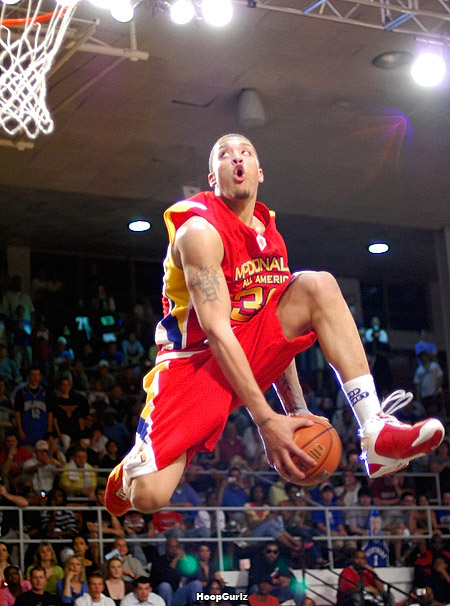 ON BASKETBALL
ON BASKETBALLLost among the story of a record 10 freshmen getting taken in the first round of Thursday’s NBA draft was a story line that could be spun as a positive for college basketball.
I’ll call it the national-title game effect.
One by one, players from Kansas and Memphis either took the stage in New York or heard their names called from a television somewhere in the country. And by the end of the night, a team-record five Jayhawks had been selected as well as three Tigers.
That’s eight players out of 60 or 13.3 percent of the NBA’s newest employees. In one word, impressive.
Of course, several of the players would have been drafted regardless of what happened to their team during the season and the NCAA Tournament — Kansas’ Brandon Rush and Darrell Arthur and Memphis’ Derrick Rose and Chris Douglas-Roberts were basically sure things.
But for the other players, their teams’ deep runs into March — and then April — had to play a huge role in what transpired Thursday night. And even for a pair of the sure-thing draftees, their stock had to have been helped by their play in the Big Dance.
Before the tournament, not a soul considered Rose the No. 1 pick in June’s draft. He wasn’t even thought of as the best player on his team. But he played precociously when it mattered most on the big stage, showing off his great talent to the minions of people who hadn’t watched his Conference USA games during the regular season.
Rush, meanwhile, cemented the fact during March that he was fully recovered from the ACL tear that had forced him to pull his name from the draft the previous year (a huge blessing in disguise). And even though he didn’t have the best tournament, his stock continued to rise, eventually resulting in him becoming a lottery pick at No. 13.
The stories of the other players are even better. While CDR and Arthur were expected to be NBA players throughout the college season — and actually were chosen lower than expected — answer this:
In February, did anyone project Kansas’ Sasha Kaun and Darnell Jackson, a pair of down-low bangers, to make the most competitive league in the world? Yeah, when George Bush gets a good approval rating.
And did anyone think that little, 6-foot-1 Mario Chalmers, just another of Kansas’ throng of guards, could leave school a year early and safely make the association? That’s another no (and I’ll skip the sarcasm this time).
Even Memphis’ Joey Dorsey, who is described as a football player, wasn’t a sure thing to get drafted. He couldn’t shoot free throws — something he still can’t do — and was known to pull disappearing acts in big games by getting into foul trouble. But Dorsey matured in March and April and, like Chalmers, was an early-second round pick Thursday.
Chalmers, of course, proved his worth as a player with arguably the most clutch shot in college-basketball history.
As for Kaun and Jackson, inspiring performances in Kansas’ wins on the march to the national title had to sit well with NBA teams who were simply looking to find winners with their second-round choices. Because there’s no way the two seniors were the most talented players left on the “board” when selected.
(Even though Kaun will play overseas for the time being, getting drafted has to be a huge confidence booster as he begins his professional career.)
But teams must have figured, “Hey, we don’t have to give them guaranteed contracts. We can see if they make the team, and if they do, they might provide valuable minutes off the bench.” That’s all either guy could ask for. And whatever happens in the coming months, I’m sure they’ll both give great effort during their tryouts.
Don’t forget that it was Kaun who basically rescued a nervous Kansas team in the regional finals against Davidson. And both players made an impact for the Jayhawks in their final two victories in San Antonio.
It was refreshing to see, after watching freshman after freshman from mediocre team take the podium, that winning in college basketball still means something to a player’s future. Maybe not to a Michael Beasley-type player, but to guys who go to college without knowing for sure that they’ll end up with an NBA career, a mansion and six cars.
Now if only the NBA would allow high-school players to once again enter the draft — and make it so college players have to stay at least three years — the Mario Chalmers and Darnell Jacksons of the world would get the proper spotlight they deserve during the college season.
While the Beasleys and O.J. Mayos of the world wouldn’t have to fool around on campus for a year for going-nowhere teams.







